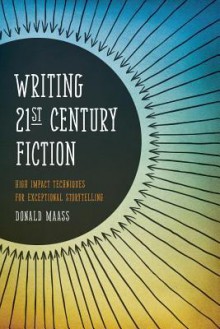
Next Question: Did your third novel Not Wonder More, Mad Maggie and the Mystery of the Ancients resolve the issue of whether to write genre or literary fiction? And what about your publisher?
I had a list of topics I wanted to research for my next novel including mental illness, magic, natural healing, global warming and old growth forests as well as naked ambition, Nietzsche's philosophy of "the Will to Power" and principle of cause and effect.
One of the reasons I write is to learn new things. I task my characters with personality traits, careers and philosophies I want to learn more about. How was I to achieve this in the context of my third and final romance novel, the last in the Eco-Warrior series?
How about having two people from very disparate backgrounds, with conflicting personalities, on the opposite sides of a seemingly irreconcilable issue fall in love?
Not too original, you say? Anyhow, here's a snapshot of the story behind Not Wonder More, Mad Maggie and the Mystery of the Ancients.
Magic, mystery and madness versus logic, cause and effect.
Can love find a middle ground?
Maggie talks to trees. Dieter talks to corporations.
Maggie embraces mystery and flirts with magic.
Dieter adheres to logic and the doctrine of Nietzsche.
Dieter's client wants to destroy the trees.
The trees want Maggie to protect them.
Dieter has terminal cancer. Maggie is schizophrenic.
Maggie says she can save him, if he'll save the trees.
Dieter thinks she's crazy, but what choice does he have?
A week together alone on Deadman's Island changes everything for both of them.
Is it madness? Is it magic? Or is it love?
This novel was an adventure. Almost immediately the characters took on lives of their own. As a conduit I was channeled in the quest to learn more about schizophrenia and the stigma of mental illness, the logic behind Nietzsche's doctrine of the Will to Power - the main driving force in humans – achievement, ambition, and the striving to reach the highest possible position in life. There was also an exploration of natural healing remedies and medicinal plants and the ecology of ancient forests.
As my characters developed so did their bond to one another - tentatively, intuitively and finally passionately.
But these characters were flawed. There is no cure for Maggie's schizophrenia. Happily Ever After wasn't possible. The best that can be hoped for was an uneasy truce with the illness.
Did I care? Not one bit.
I had been taken on an adventure without maps with no clear destination and accompanying me were these fascinating characters. It truly was a life within a life. If you've had this experience you know what I mean. If you haven't I sincerely hope you do.
My entire perspective changed. I no longer was frustrated by my lack of success. It seemed almost irrelevant. I shutdown my Facebook page and quit my time consuming, unproductive writer chat/critique groups. The key to this other world was to become a better writer. I wanted go there and bring others with me.
To think that I could set parameters for my writing now seemed ridiculous. I would simply go where it took me or as Norman Mailer put it, “Until you see where your ideas lead to, you know nothing.”
My next book was already taking shape in my mind and it wouldn't be a romance, more likely it would fall into the category of literary/commercial. That made it unlikely my publisher would want to take it on.
I didn't care.
What had my publisher given me so far - slick, cheesy covers that didn't represent the story, no editing, no proof reading (readers said they liked the stories but not the typos) and they were reluctant to publish them in paperback which Amazon would do for free.
It wasn't like they'd mislead me or provided more or better services for other authors, but my books deserved better than what they were getting. I resolved to do two things - not renew my publishing contracts and self-publish my next book.
Besides, it now seemed untenable to abandon the fate of my books to someone else. I wanted to control their destiny - to set their prices or for that matter to give them away, to promote or not without restriction.
I understood self-publishing would mean doing my own promotion. I began researching book marketing techniques and was astounded and disturbed. Most "marketing experts" encouraged you to pander to friends, family - anyone and everyone to get them to post flattering reviews and ratings. There were sites that would write positive reviews for money and authors who would "swap" positive reviews.
It was then I decided to make writing my one true thing. If I was going to fail I'd at least do it with my integrity intact. It wasn't that I'd lived an immoral life up until then, but I'd cut a few corners.
Full disclosure seemed the best way to do this. I began to write my blog, "Writing - the experience" https://rodraglin.wordpress.com/ , chronicling my progress, or lack of it, and sharing what I discovered along the way and how I felt about it in regards to writing, publishing and marketing.
I felt relieved and renewed. I was not going to be a bestselling author. The pressure was off.
Question #4: So how did your new direction - writing and self-publishing literary/ commercial fiction, work out for you?


 Log in with Facebook
Log in with Facebook 






